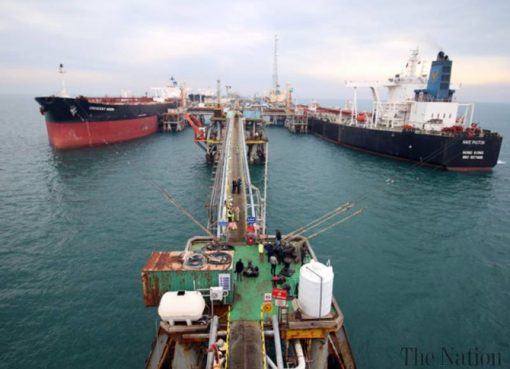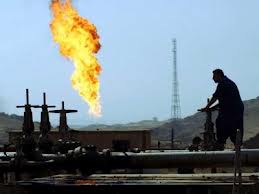- Iraq may be on the cusp of a revenue windfall after losing billions of dollars annually due of its insufficient oil production facilities, according to investors.
- Development goals include capturing gas flares, or the gas burned off during oil production, to convert into usable energy and which Siemens estimates could save Iraq $5.2 billion over the next four years.
- Working with Iraq’s electricity ministry, multinational energy and industrial companies have major plans to turn the sector around — though they say a slow-moving bureaucracy gets in the way.
Iraq may be on the cusp of a revenue windfall after losing billions of dollars annually due to its insufficient oil production facilities, according to investors.
International energy executives have been clinching new contracts to develop the hydrocarbon-rich country’s energy sector that, despite being OPEC’s second-largest producer, has failed to solve domestic poverty and infrastructure woes.
But foreign investors admit that lofty development goals continue to be hindered by sluggish administration, corruption and a wall of bureaucracy.
“The administrative decision-making process takes so long, it takes a lot of resources to be there and support during those fallow periods,” said Robert Helme, head of business development at technical services provider Wood, which has multi-million dollar contracts with the Iraqi government.
Other executives noted it takes up to eight weeks for employees to get visas to enter the country.
Jean-Claude Nasr, senior vice president at Siemens Power & Gas, stressed the need for “faster decision making process and transparency — from the electricity sector this has to be made by yesterday, at least on the short-term scale.”
Development goals include capturing gas flares, or the gas burned off during oil production, to convert into usable energy and which Siemens estimates could save Iraq $5.2 billion over the next four years. Previous inability to capture this excess natural gas due to the war-weary country’s underdeveloped infrastructure has amounted to billions of dollars in lost revenue per year.
Working with Iraq’s electricity ministry, multinational energy and industrial companies have major plans to turn the sector around — something that will be critical for post-war reconstruction, the funding of which the World Bank estimates will require up to $150 billion.
Multi-billion dollar contracts
Executives from Shell, BP, Chevron, Siemens and General Electric (GE), among others, gathered in Dubai on Sunday to present their plans for the country’s energy and infrastructure sectors. The conference, organized by the Iraqi British Business Council (IBBC), focused on the private sector’s role in rebuilding and investing in the country of 38 million, one year on from the defeat of the Islamic State group in Iraq.
At the helm of major energy investments is GE, which in October beat out German manufacturer Siemens in a hotly contested competition for a massive 14 gigawatt (GW) power generation contract worth a reported $15 billion. Siemens inked its own agreement to provide a separate 11 GW to Iraq’s power infrastructure.
Russell Stokes, CEO of GE Power said of the deal, “We are honored to support the government’s focus on rebuilding Iraq… We understand how important it is to deliver power immediately.” The venture is expected to create up to 65,000 direct and indirect jobs and generate savings of up to $3 billion per year.
GE’s first wave of gas flare capturing in 2017 has already successfully added 400 megawatts to Iraq’s electricity grid. But in a country where frequent and prolonged power outages have led to violent protests, there is little time to lose.
No time to lose
Iraq’s urgent need for improved energy efficiency is manifold. “The country currently has 15.6 gigawatts (GW) of power available on its grid, while national demand is at 25.2 GW and expected to grow by 6 percent per year,” Seimens’ Nasr said.
Over the summer, Iraq failed to pay its power bill to Iran, on whom it depends for some 40 percent of its electricity. This prompted Tehran to cut the power off and led to widespread protests in the country’s south, particularly in poverty-stricken Basra, where government buildings and the consulates of Iran and the U.S. were attacked.
Iraq’s efforts to rebuild depend heavily on security and stability within its fragile democracy, country experts agree — something that will remain at risk without reliable power.
(*) Natasha TurakCorrespondent, CNBC
Source: CNBC, Published 29 Nov 2018








Comment here